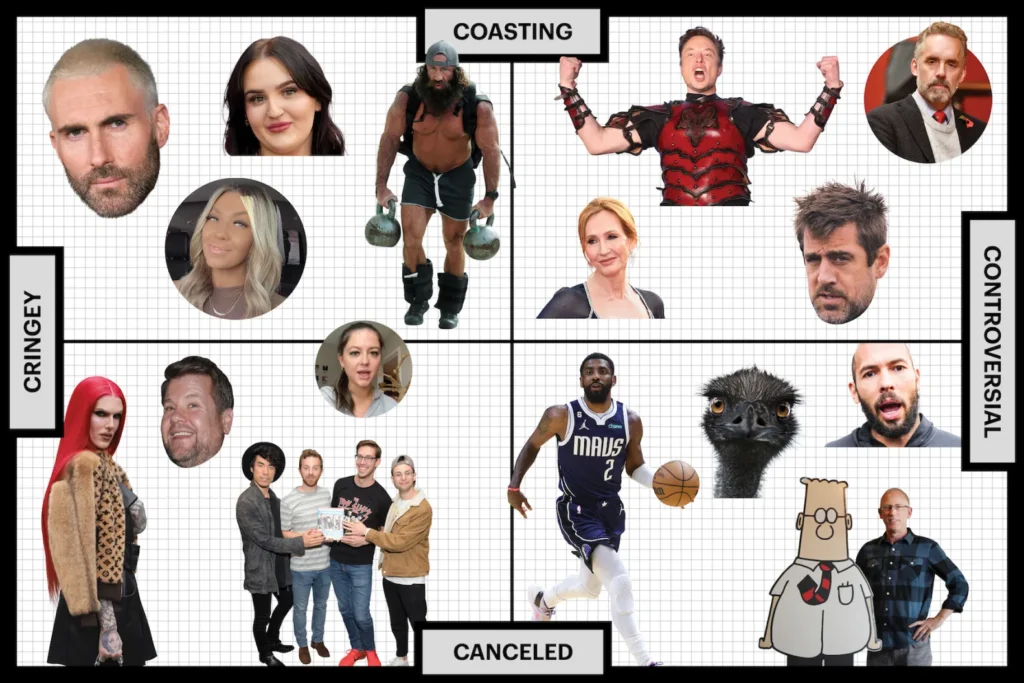Social media is at the heart of modern marketing—fast-paced, unpredictable, and constantly evolving. While influencer marketing was once seen as the key to success, its shine is fading. Nearly 90% of consumers no longer trust influencers. They’ve long since seen through the commercialization and now question authenticity. However, here’s the twist: micro-influencers, with smaller but loyal communities, are becoming the new gold standard for brands. It’s no longer about quantity but about depth.
The Power of Social Media
Social media is undeniably a core component of any modern marketing strategy. Platforms like Instagram, TikTok, and YouTube allow brands to engage with millions in real time. The immediacy and accessibility of these platforms give companies the chance to promote products, tell stories, and build direct communication with their audience. Trends, such as the “Cracking Latte” hype on TikTok, are more than just viral moments—they symbolize the desire for genuine connection. Companies that understand and integrate this into their content gain a significant advantage. Creative content resonates with people, tells stories, and fosters emotional connections that go far beyond mere purchase decisions.
However, maintaining this authenticity, particularly in partnerships with influencers, has become a double-edged sword.
Influencer Marketing: A Double-Edged Sword
Influencer marketing relies on individuals who have built large followings and credibility within specific niches. These influencers offer brands direct access to their target audiences, instantly creating visibility. However, consumer trust in influencers is dwindling. Many brands face increasing skepticism, with consumers doubting whether influencers align with their values or simply prioritize making quick money. Influencers engaging in controversial, inappropriate, or even illegal behavior just for attention have become a headache for many brands, risking their reputation. By the way: Rolling Stone did a great piece on this.

In short, brands that rely too heavily on influencer marketing could see a decline in credibility if the partnerships don’t authentically reflect their values. The key issue is trust—consumers increasingly feel that influencer recommendations are less genuine and more profit-driven. Shockingly, 42% of consumers regret purchases influenced by such recommendations.
The Path to Authenticity
Brands aiming for long-term success need to focus on sustainability more than ever. Consumers expect transparency, and a green logo isn’t enough. Genuine actions, from production to delivery, are essential. Brands failing to deliver will quickly be called out. As mentioned, micro-influencers often better convey these values and build greater trust.
User-generated content (UGC) is also gaining importance in authentic brand communication. Communities, like LEGO’s, where users submit their own content and ideas, demonstrate the power of consumer engagement. By allowing consumers to actively participate in shaping the brand’s story, companies create stronger emotional bonds—something influencer recommendations often fail to achieve.
Gen Z and Their Expectations
Generation Z, often referred to as “digital natives,” is a crucial target group that brands should already be engaging—after all, Generation Alpha is next in line. However, Gen Z is highly skeptical of traditional advertising and influencer endorsements. They demand brands that reflect their values, whether it’s sustainability, inclusion, or social justice. McKinsey’s 2024 “State of Marketing” report emphasizes that brands are now facing heightened expectations from this generation, which demands authenticity and transparency from the companies they support.
Interestingly, the same report highlights a return to the fundamental principles of marketing, such as creativity and brand building. The focus is on building long-term emotional connections with consumers, reminiscent of the 1950s and 60s, when iconic campaigns like Volkswagen’s “Think Small” created timeless brand loyalty. Some brands now recognize that it’s not just about going viral but about crafting lasting messages deeply rooted in their target audience.
Is the 9:16 Award the Wrong Direction?
Social media is fast-paced and demanding. Brands unable to adapt while delivering both personalized and meaningful content will fall behind. Those who grasp this have the potential to thrive.
Short-form content like TikToks and Reels dominate social media. Their brevity belies their complexity. Successful brands use these few seconds to tell captivating stories that evoke emotions. Tyla Dance, for example, has succeeded on TikTok not only because of her dance skills but because her personality shines through in every clip. Brands that understand and adapt to these changes will continue to succeed—those that don’t will soon be forgotten.
As Andy Warhol said, “In the future, everyone will be famous for 15 minutes.” However, brands thinking long-term must aim for more than fleeting fame.
It’s never been just about selling products—it’s about telling stories, transitioning from influencers to brand ambassadors. Burstiness, unpredictability, complexity—these aren’t just characteristics of great content but the cornerstones of what the future of marketing will be. “Adapt or die.” Quality will outlast cheap mass appeal, especially in the long run.
And What About Personalization?
Personalization remains one of the strongest tools. Even in social media, personalized content has the potential to quadruple ROI compared to generic ads. In a timeline where consumers are constantly bombarded with content, personalized messages break through the noise. We call this “thumb-stopping.”
Social 2025
Looking ahead to 2025, the future of social media marketing is both promising and challenging. Brands must swiftly adapt to shifting consumer behavior, especially the increasing demand for authentic and meaningful content.
The era of blind trust in influencers is ending, and companies must evolve to maintain consumer trust and loyalty. Collaborating with micro-influencers, leveraging user-generated content, and sticking to sustainable, value-driven narratives will be key to future success.
As consumers increasingly gravitate toward brands that reflect their values and show genuine engagement, marketers will need to blend creativity and strategy, using tools like generative AI to enhance the human element of marketing—not replace it.
Long story short? Trust your brand, invest in your brand. Dare to push boundaries without focusing only on short-term reach. Think sustainably and for the long term.
This is the way.
